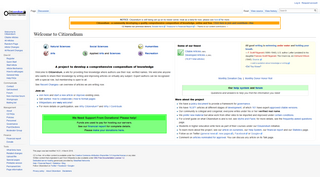Related Research Articles

B3ta is a popular British website, described as a "puerile digital arts community" by The Guardian. It was founded in 2001 by Rob Manuel, Denise Wilton and Cal Henderson.

Ruby on Rails is a server-side web application framework written in Ruby under the MIT License. Rails is a model–view–controller (MVC) framework, providing default structures for a database, a web service, and web pages. It encourages and facilitates the use of web standards such as JSON or XML for data transfer and HTML, CSS and JavaScript for user interfacing. In addition to MVC, Rails emphasizes the use of other well-known software engineering patterns and paradigms, including convention over configuration (CoC), don't repeat yourself (DRY), and the active record pattern.

LGBT tourism is a form of tourism marketed to gay, lesbian, bisexual, and transgender (LGBTQ) people. People might be open about their sexual orientation and gender identity at times, but less so in areas known for violence against LGBT people.

Atomic once was a monthly Australian magazine and online community that focused on computing and technology, with a great emphasis on gaming, modding and computer hardware. Atomic was marketed at technology enthusiasts and covered topics that were not normally found in mainstream PC publications, including video card and CPU overclocking, Windows registry tweaking, and programming. The magazine's strapline was 'Maximum Power Computing', reflecting the broad nature of its technology content.

The gay liberation movement was a social and political movement of the late 1960s through the mid-1980s in the Western world, that urged lesbians and gay men to engage in radical direct action, and to counter societal shame with gay pride. In the feminist spirit of the personal being political, the most basic form of activism was an emphasis on coming out to family, friends, and colleagues, and living life as an openly lesbian or gay person.
Planet Half-Life was a gaming website owned by IGN and its subsidiary GameSpy. Maintained by a voluntary team of contributors, the site was dedicated to providing news and information about Half-Life, Half-Life 2 and related modifications and other Valve titles. It was founded by Kevin "Fragmaster" Bowen and was at one point the largest of an array of GameSpy-run gaming websites known as the Planet Network. Following GameSpy's closure, the Planet Half-Life website still remains accessible, but seems to have ceased updating since August 2012.

The Nautical Archaeology Society (NAS) is a charity registered in England and Wales and in Scotland and is a company limited by guarantee.
Sheela Lambert (1956-2024), a native and lifelong resident of New York City, was an American bisexual activist and writer.
Women Against Violence in Pornography and Media (WAVPM) was a feminist anti-pornography activist group based in San Francisco and an influential force in the larger feminist anti-pornography movement of the late 1970s and 1980s.

Lark Street is a historic street in Albany, New York, US. It is part of the Arbor Hill, Sheridan Hollow, Center Square, Park South and Hudson/Park neighborhoods, and is located one block east of Washington Park. Lark Street is the site of many independently owned shops, coffee houses, restaurants, art galleries, antique shops, marketing agencies, bars and tattoo shops. Although the part between Madison Avenue and Washington Avenue was rebuilt in 2002-2003 to place new roadways, trees and sidewalks in front of the new shops in the active portion of Lark Street, some local residents have protested against the neglect of the northern end of the street, which runs down into the less-affluent Arbor Hill neighborhood. Lark Street and Jay Street was used as a location during the filming of Ironweed. The Washington Avenue Armory is located at the corner of Lark Street and Washington Avenue.

Citizendium is an English-language wiki-based free online encyclopedia launched by Larry Sanger, co-founder of Nupedia and Wikipedia.

The East London Mosque (ELM) is situated in the London Borough of Tower Hamlets between Whitechapel and Aldgate East. Combined with the adjoining London Muslim Centre and Maryam Centre, it is one of the largest mosques in Western Europe accommodating more than 7,000 worshippers for congregational prayers. The mosque was one of the first in the UK to be allowed to use loudspeakers to broadcast the adhan.

DontStayIn, commonly abbreviated to DSI, was a social networking site based around clubbing. Primarily covering the UK, it listed nearly 185,000 events, and at its peak had over five million verified members. Members were encouraged to upload picture galleries to the site for events they've attended, add events and venues and otherwise contribute. "Spotters" were DSI members who reviewed and photographed events.
Gingerbeer may refer to:

The h2g2 website is a British-based collaborative online encyclopedia project. It describes itself as "an unconventional guide to life, the universe, and everything", in the spirit of the fictional publication The Hitchhiker's Guide to the Galaxy from the science fiction comedy series of the same name by Douglas Adams. It was founded by Adams in 1999 and was run by the BBC between 2001 and 2011.

DMOZ was a multilingual open-content directory of World Wide Web links. The site and community who maintained it were also known as the Open Directory Project (ODP). It was owned by AOL but constructed and maintained by a community of volunteer editors.

The Wayback Machine is a digital archive of the World Wide Web founded by the Internet Archive, an American nonprofit organization based in San Francisco, California. Created in 1996 and launched to the public in 2001, it allows users to go "back in time" to see how websites looked in the past. Its founders, Brewster Kahle and Bruce Gilliat, developed the Wayback Machine to provide "universal access to all knowledge" by preserving archived copies of defunct web pages.

Intersex civil society organizations have existed since at least the mid-1980s. They include peer support groups and advocacy organizations active on health and medical issues, human rights, legal recognition, and peer and family support. Some groups, including the earliest, were open to people with specific intersex traits, while others are open to people with many different kinds of intersex traits.

LGBT Foundation is a national charity based in Manchester with a wide portfolio of services. With a history dating back to 1975, it campaigns for a fair and equal society where all lesbian, gay, bisexual and trans (LGBTQ) people are able to reach their full potential. They support over 40,000 people directly every year, and a further 600,000 online. They provide direct services and resources to more LGBT people than any other charity of its kind in the UK.
References
- ↑ Interview with SuMay Hwang Archived 2007-09-27 at the Wayback Machine , founder of Gingerbeer, on DimSum, the British Chinese community website
- ↑ "Gingerbeer". Archived from the original on 2 July 2007. Retrieved 30 May 2007.
- ↑ Gingerbeer message boards Archived 27 May 2007 at the Wayback Machine - see Forum Statistics
- ↑ Damron Women's Traveller 2007, Damron, San Francisco, 2006, ISBN 978-0-929435-59-6, page 528
- ↑ Bay Area Reporter, Vol 37, No 22, London, England: Europe's 'gay' capital, 31 May 2007